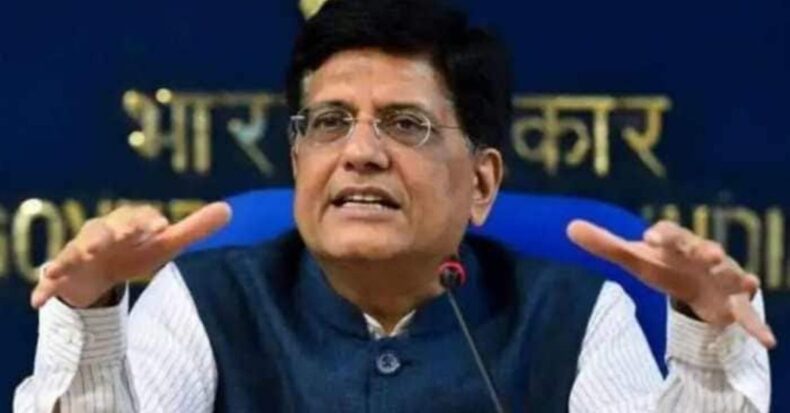Minister of Textiles Piyush Goyal prompted the textile industry to concentrate on speed, skill, and scale and develop innovative partnerships to reduce India’s import dependence on Textile machinery.
The union minister has called for the advancement of the hundreds of Indian textile machinery leaders that are well known worldwide through the combined efforts between the Government and the textile engineering industry.
Mr Goyal was attending a video conference on 22nd Oct Friday with the country’s textile machinery manufacturers, urging the textile machinery manufacturers to acquire the plug-and-play approach and leave the command-and-control mindset to develop the textile sector in name and spirit.
The Conference
Fifteen foreign areas textile machinery manufacturers, twenty indigenous textile manufacturers, seven textile machinery and associated industry unions participated and proposed their viewpoints in the online conference.
Mr Goyal also calls for focusing on quality and higher productivity to capture the more significant markets.
He also admitted that although India is not in an unfavourable situation to imports, India must reduce its import dependency on textile machinery with the combined efforts of the textile engineering industry and the Government.
He also said that the National Capital Goods Policy formulated by the Government aims at increasing the production of capital goods value to $101 billion by 2025.
Mr Goyal urged the textile industry to focus on speed, skill and scale and develop innovative partnerships. He called for evolving hundred Indian textile machinery leaders recognized across the world.
Mr Goyal said the seven locations would be specified in near time for facilitating the industry and formulating a common infrastructure for plug and play.
He further stated how this initiative would set the momentum for continual development and innovation ensuing in ever-evolving and improving competitive capacities along the value chain and enhance domestic consumption and stimulate the exports of higher-value goods.
The Minister recognized the liquidity challenges, the high cost of raw materials and freight movement in the conference, assuring that the Government is working to assist the issues.
He also encouraged the involvement of the international capital in the industry that will create job opportunities in India and add value to the entire textiles ecosystem.
Piyush Goyal is The Minister of Commerce and Industry, Textiles, Consumer Affairs, Food & Public Distribution was aiming his encouragements at the ‘Make in India’ program of the country to acquire such designing techniques and strategies they will help in the growth of the facilitating ecosystem for the development of the textiles engineering industry.
Mr Piyush Goyal referred to India’s recent achievements of completing hundred crore vaccines, crediting India’s ‘Atmanirbharta’ (self-reliance) capabilities. The Minister also cited the past achievement of the Mission Chandrayan.
He also asked the manufacturers to join the PM-MITRA scheme.
Textile Machinery Situation in India
India’s Textile machinery dependence has increased continuously over the years; from 2009 to 2018, the imports intensified from 61.199 US Dollars to 159.19 US Dollars.
Top countries from where Textile Machinery is imported to India
| Country | Value in US Dollar |
| China | 17.48 |
| Germany | 9.49 |
| Netherlands | 5.43 |
| Switzerland | 2.77 |
| Italy | 1.66 |
Coronavirus situation has been a boon for the Indian Textile Machineries to work on its technology, transfers/joint venture and strengthen the machinery with state base of-the-art technologies, as the exports and imports of textile machinery from European countries has declined to nearly nil amount.
The pandemic, which is said to have originated in China, has affected everyone globally, and the United States and European countries are among the worst-hit ones.
Countries are angry at China and its lack of acknowledgement of the harms and death caused by the virus that the countries believe was growing in China for a long time before the news ultimately came out, not giving the countries any time to prepare themselves against the virus.
This anger results in cutting ties from China and focusing on self-establishing the products and industry that used to be imported from the country earlier.
Indian textile machinery manufacturers strive to take full advantage of the global anti-Chinese attitudes and continue the lack of import dependence that had reduced to 45.8 US Dollars in 2020.












